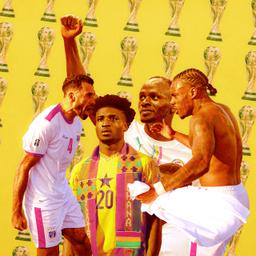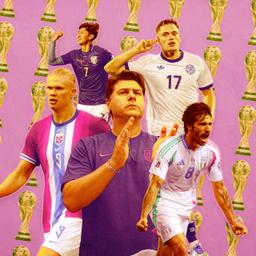Welcome back to World Cup Countdown—The Ringer’s monthly column previewing the 2026 World Cup, which will be hosted in the United States, Canada, and Mexico. Each month, we’ll cover everything shaping the tournament, from the U.S. men’s national team to the stars and story lines abroad that will define qualifying and the buildup to the opening match. Here’s where we stand 202 days before kickoff.
The Big Thing
History, Miracles, and Heartbreak in One of the Final Rounds of Qualifying

Fans of Curacao watch the 2026 FIFA World Cup qualifier football match between Jamaica and Curacao
The expansion of the World Cup from 32 to 48 teams might be a blatant money grab by FIFA. It might even lower the stakes of the group stage for the top contenders. But it hasn’t diluted the drama of the buildup to the event. If anything, it’s expanded the excitement and the belief of nations once on the outside. And in this November international window, we saw the impact of a bigger field ripple across multiple corners of the globe. From the history-making of Haiti and Curacao in the Caribbean to the late-game heroics of Ireland and Scotland in Europe, Iraq in the Middle East, and DR Congo in Africa, we were constantly reminded of the unbridled, uncorrupted joy of representing and rooting for your nation on the global stage.
The World Cup next summer will still be decided by the same dozen or so nations that have always dominated. We’ll soon find out the group stage draw and be reminded that only eight countries have ever won the world’s biggest soccer prize. Seven of them have already qualified for the 2026 tournament comfortably. (More on the one who has yet to—cough, Italy—later.) But these past two weeks weren’t about the top of the soccer pyramid; they were about the less established soccer hot spots where joy hasn’t yet been commercialized out of the sport—places where a single goal can still change the trajectory of a nation’s spirit.
CONCACAF was one of the biggest beneficiaries of World Cup expansion, and the qualification of Haiti and Curacao is the perfect encapsulation of this. Haiti hasn’t been to the World Cup since 1974, but they beat Nicaragua 2-0 on Tuesday night to clinch one of CONCACAF’s automatic qualifying spots. There are now serious geopolitical questions surrounding Haitians’ ability to travel to the U.S. that will need to be answered before a ball is kicked, but that wasn’t on the minds of celebrating fans in Port-au-Prince. Haiti qualified without playing a single match on home soil due to the ongoing violence and political instability that resulted in the takeover of the national stadium. Sébastien Migné, Haiti’s head coach, still hasn’t even entered the country due to the displacement of their matches. That Haiti managed to pull this off speaks to the incredible resolve of the team and all of their supporters back home.
Meanwhile, Curacao’s 2-0 win at home against Jamaica last month opened the door for them to make history, but they needed at least a draw in Kingston on Tuesday to actually pull off the miracle. In the rematch, Jamaica hit the post three times and had a penalty (correctly) overturned by the video assistant referee in stoppage time, and they never found the breakthrough in a goalless draw. Now, Curacao, an island of 155,000 people, is officially the smallest nation to ever reach the World Cup, breaking the record set by Iceland in 2018.
Over in Europe, while England coasted through a perfect qualification campaign without conceding a single goal in eight matches (!), the British Isles were still the epicenter of qualifying drama on the continent.
First, in Glasgow, Hampden Park’s thundering pre-match rendition of “Flower of Scotland” sounded like a nation willing its team to victory. The Scots needed to defeat Denmark in a winner-takes-all match to qualify for their first World Cup since 1998. The players responded with three of the most ridiculous goals of the entire qualifying cycle. Scott McTominay’s leaping bicycle kick in just the third minute opened the scoring, while Kieran Tierney’s left-footed rocket gave them the lead in stoppage time. Then, Kenny McLean’s booted effort from the halfway line iced the 4-2 win against 10-man Denmark and secured Scotland’s first World Cup appearance in the 21st century. Maybe we’ll be lucky enough to see them get drawn against rival England next summer.
Elsewhere, Ireland striker Troy Parrott had arguably the best individual international break in recent memory. First, he scored two goals in a stunning upset of Portugal to keep Ireland’s playoff hopes alive, outdueling Cristiano Ronaldo in the process. Irish fans jeered Ronaldo in the 59th minute after he was sent off for elbowing an Ireland defender.
As if a do-or-die win against global superpower Portugal wasn’t enough, Ireland also needed a road win in Hungary on the final day of group play. Parrott proceeded to net a hat trick, scoring his third goal on essentially the final kick of the game, to complete the Irish comeback and book them a place in the European playoffs.
Gaelic football and hurling (I know, I hadn’t heard of it either) are more popular sports in Ireland, but this was a rare shining beacon of soccer success for the nation. Ireland hasn’t been to the World Cup since 2002, and they still need to win two more matches in March to get there, but the belief in them has never been stronger following that late-game miracle.
The chaos of the final round of qualifying wasn’t limited to Europe and the Caribbean, though. DR Congo delivered the most delirious 72 hours of the entire African cycle. They scored in stoppage time to topple Cameroon last Thursday, and on Sunday, they outlasted Nigeria in the CAF playoff final—a match so chaotic that Nigeria’s coach publicly accused Congo of using voodoo during their penalty shoot-out.
Nigeria and Cameroon entered the playoffs as the favorites, with deeper squads and richer pedigrees. It didn’t matter. Congo knocked out both of them in succession, a perfect encapsulation of the absurd parity that defines African qualifying, where chaos is the only thing you can bank on.
And if South America’s CONMEBOL is still considered the world’s most brutal qualification gauntlet, with 18 matches over the course of two years, Iraq suddenly made a case for the AFC (Asia). In their 20th and final match of the cycle, Iraq found a 90+17-minute winner to beat the United Arab Emirates, booking themselves a spot in March’s inter-confederation playoff.
Not one of the victorious teams mentioned in this section has been to the World Cup in the past 20 years. You can be a curmudgeon if you’d like and point out that, yes, most of these teams are only qualifying because of the expanded field. Or, you can choose to embrace the fact that 2026 will truly be the most global World Cup that has ever existed, in the truest sense of the name.
Before we move on, here’s a look at the 42 teams that have officially qualified for the 2026 World Cup. Just six to go.
State of the States
This section focuses on the United States men’s national team as it prepares to host the World Cup.
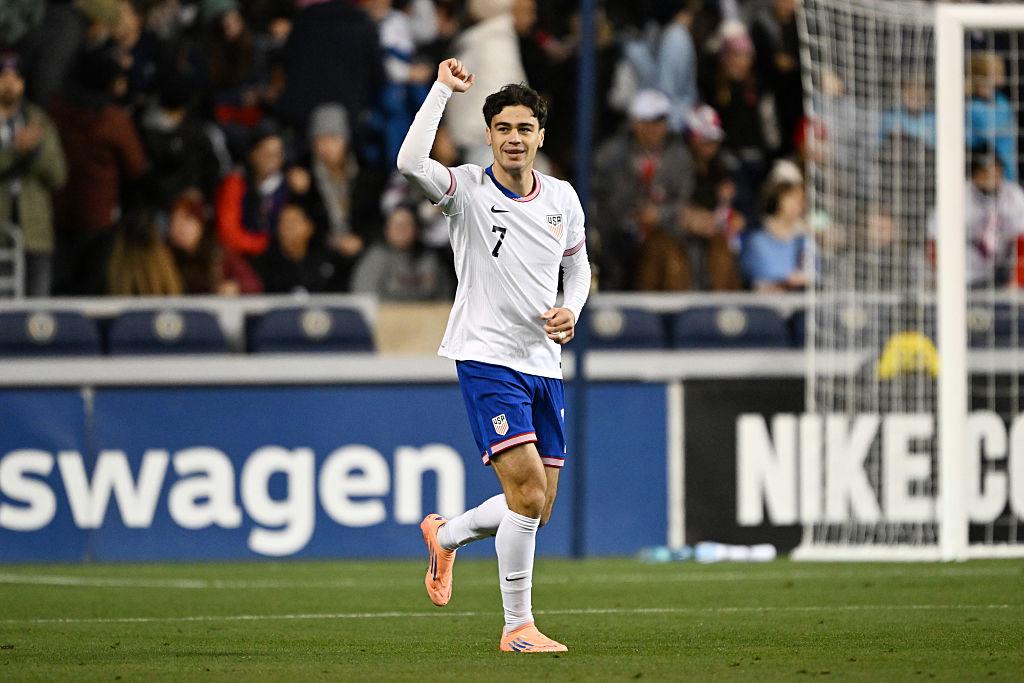
Gio Reyna celebrates after scoring the U.S. team’s first goal during an international friendly against Paraguay
Mauricio Pochettino has found some sustained success for the first time as manager of the U.S. men’s national team, and he’s showing a bit of backbone in the media room, too. Following a supremely impressive 5-1 thrashing of Uruguay on Tuesday with a rotated squad, he pushed back against the idea of there being an “A team” and “B team.” The Americans played without more high-profile players like Christian Pulisic, Antonee Robinson, Tyler Adams, Chris Richards, Weston McKennie, and Tim Weah. But Pochettino wouldn’t let the press label those players as “regulars,” calling the designation "disrespectful" to the rest of the squad.
This presser had a much different tone than the one following the U.S.’s September 2-0 defeat to South Korea, in which Pochettino suggested that the United States didn’t actually need to win matches before the World Cup. Technically, he’s not wrong. But it doesn’t hurt to start producing positive results to help a skeptical and, frankly, annoyed fan base buy back in before next summer. There’s been a distinct lack of belief in this U.S. team overall, but eye-popping results like those from Tuesday vs. Uruguay (as well as a 2-1 victory against Paraguay three days earlier) can change that quickly.
The squad absences left room for Gio Reyna to play some much-needed national team minutes, and not only did Reyna score against Paraguay, but his link-up play on the right side with Sergiño Dest was especially impressive. Against Uruguay, Sebastian Berhalter also scored a stellar set-piece goal after not getting called up in October and featuring in a limited role against Paraguay, and Alex Freeman netted twice from the center back position. All of a sudden, the USMNT players have some wind at their backs for what feels like the first time since the 2022 World Cup.
One benefit of hosting the World Cup is the ability to schedule high-quality friendlies, and The Athletic reported that the United States will play Belgium and Portugal in March and then Germany in June before the World Cup, which begins on June 11. Competition against Europe’s powerhouses is only going to help the U.S. be more prepared when the tournament kicks off in earnest.
Stock Watch
This section focuses on the shifting fortunes of players, managers, and nations who could play a significant role next summer.
Stock Up: The Vibes of International Soccer
It’s hard to overstate how enjoyable this qualifying campaign has been as a spectator. Even though the USMNT didn’t have to go through a grueling (albeit entertaining) CONCACAF hex and none of the top-tier teams have missed the field (yet), there is a certain joy in finding random qualifying games and watching two lesser-known nations duke it out. The stakes are so massive that it automatically creates a compelling viewing experience, and it will only enhance the enjoyment of the actual tournament next summer.
Stock Up: Erling Haaland’s Apex Mountain (for Now)
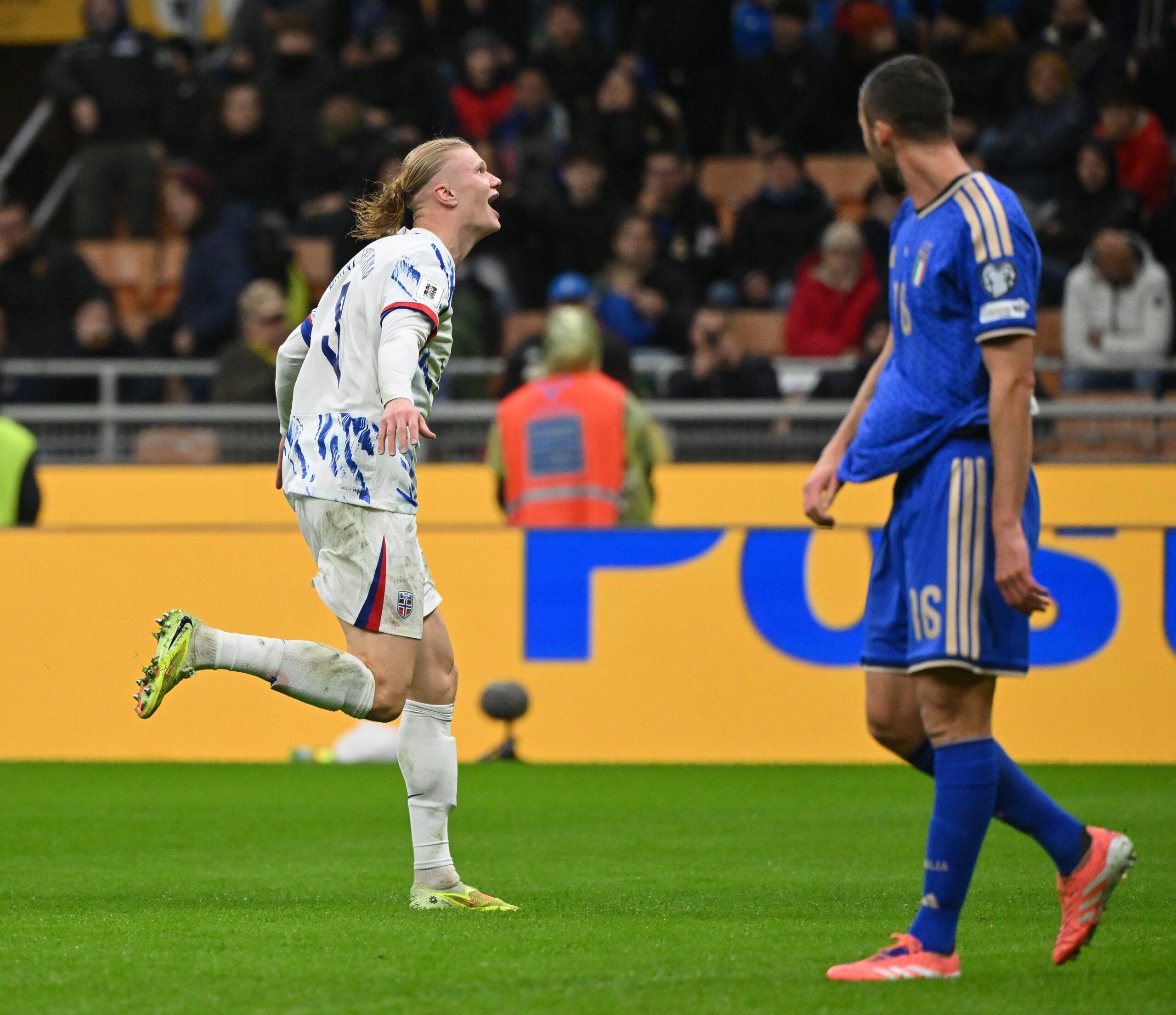
Erling Haaland celebrates his second goal during the 2026 World Cup European qualifiers match between Italy and Norway
Erling Haaland was built in a lab to score goals, but even by his standards, this season feels different. At a moment when both Manchester City and Norway desperately need a singular force to carry them, Haaland has answered with one of the most absurd goal-scoring stretches we’ve seen in modern football.
He has 19 of Manchester City’s 32 goals across the Premier League and Champions League, a level of dependency you simply never see from a team of such quality (and wealth). He’s already put 36 shots on target in all competitions, and no other City player has more than 11. We’ve seen the two-time Premier League Golden Boot winner be unstoppable before, but we’ve never seen City’s entire attack function so unapologetically through him.
And then there’s Norway. Yes, they benefited from a soft qualifying group. Yes, the team overall piled up 37 goals in eight matches. But Haaland’s contribution still looks like a scoreboard glitch. No other player in UEFA qualifying scored more than eight goals. Haaland scored 16.
He’ll never be mistaken for the most elegant player in the world, and his touches won’t go viral the way others do for players at the top of the sport. But his first-step burst, his power, and his ability to carve out space inside the box are unmatched. Haaland doesn’t just finish chances—he creates and scores chances that others cannot.
Stock Down: Marcelo Bielsa’s Uruguay
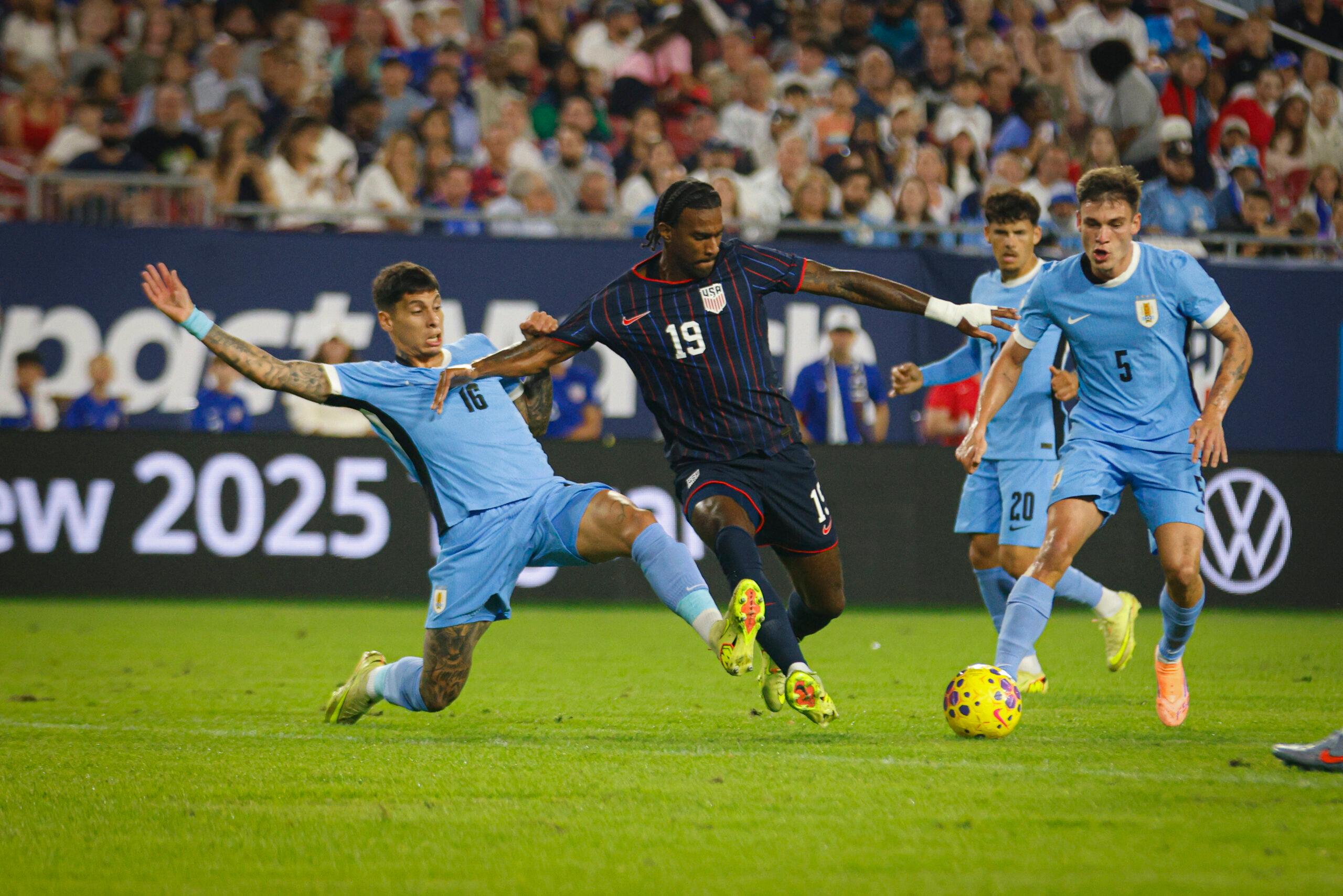
The international friendly between the United States and Uruguay on November 18
Uruguay put out a relatively strong team on Tuesday night in Tampa, and while the final scoreline certainly flattered the Americans’ actual performance, it was clear that the Uruguayans were more than a step off the pace the whole match.
“There is no way to justify this result,” Bielsa said after the match. “I feel that what is most affected after this performance is my approach to the match, how I prepared the players. What occurred tonight is a result of my role as a coach and how I set up the team, and the style of play I proposed.”
Bielsa took full blame for the defeat, and now there are serious doubts about whether he’ll even be the head coach during the World Cup next summer. The difference between Uruguay’s physical, disciplined, and composed performance against the Americans at Copa Ámerica 2024 (also under Bielsa) and Tuesday’s flat showing represents the clear decline in their performances since that tournament concluded.
Uruguay in World Cup qualifying before Copa America
13 points in six matches (includes wins against Brazil and Argentina)
After Copa America
15 points in 12 matches (just three wins total)
Stock Down: Set Piece Supremacy as a Viewing Experience
The percentage of goals coming from set pieces in the Premier League is hitting genuinely frustrating levels. The soccer analytics revolution always hinted this might happen—that teams would “moneyball” every marginal edge out of dead-ball situations, weaponizing long throws, hiring specialist coaches, and turning the most continuous-flow sport into something far more stop-start. Ryan O’Hanlon wrote about this for ESPN last month, concluding that there’s not just a rise in set-piece scoring, but also a corresponding drop in actual minutes the ball is in play. If we’re all standing around waiting for the next throw-in routine, the viewing experience inevitably suffers.
I love a well-executed set piece goal as much as anyone, but they become disproportionately important in international tournaments. And no one wants a World Cup defined by 40-yard throws and choreographed dead-ball plays.
Awards Spotlight
Each month, the World Cup Countdown selection committee (me) will highlight some of the best, worst, and strangest moments in the sport.
The Groundhog Day Award for Trying the Same Thing Over and Over Again: The Italian National Team
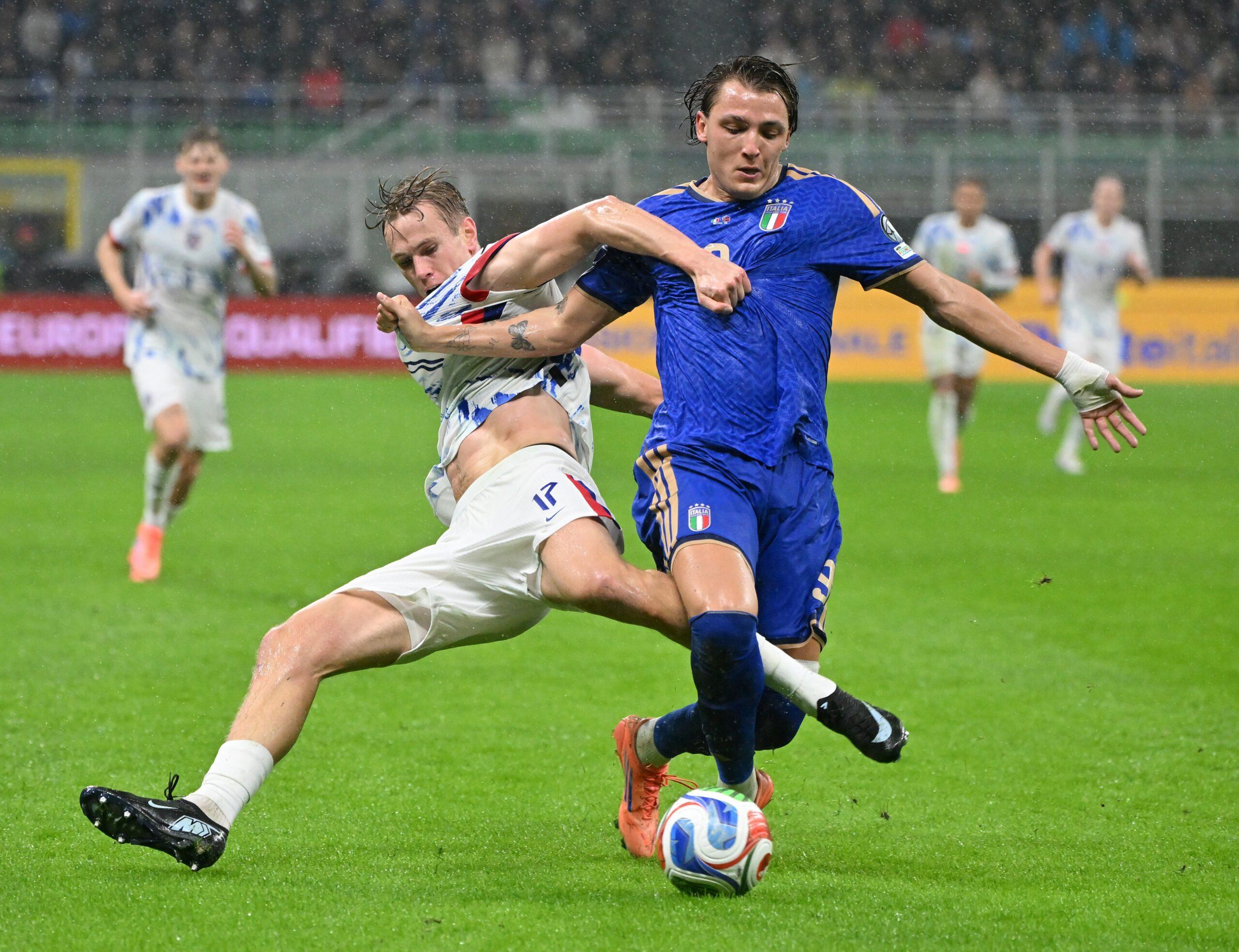
Mateo Retegui of Italy vies with Torbjorn Heggem of Norway during the 2026 World Cup European qualifiers match between Italy and Norway on November 16
This isn’t the first time the futility of the Italian national team has been featured in this column, and it probably won’t be the last. It was pretty clear going into Sunday that Italy wasn’t going to win their qualifying group (they would have needed to win by nine goals), but that doesn’t excuse the performance they put up anyway. Norway had already pounded them 3-0 in Oslo to begin qualifying, and Italy’s big response on Sunday in Rome was to squander a 1-0 lead and lose 4-1. Denmark and Italy were the only two group favorites to lose hold of their qualifying groups. Denmark lost its lead in stoppage time of the final match, while Italy never looked like it belonged in the same weight class as Norway.
It’s true that Norway has Haaland and Martin Odegaard, two attacking players who are better than anyone Italy can muster for goal scoring. But the fact that Italy shipped seven goals to Norway in two matches despite all their defensive prowess is puzzling. Italy now finds itself in the European playoff in March. Given their talent, they’re still a favorite to go through. They'll host Northern Ireland on March 26, and if they win, they’ll visit either Wales or Bosnia and Herzegovina on March 31. They’re just two wins from a return to the World Cup, but they’ve flown too close to the sun and have been burned by the playoffs in each of the last two qualifying cycles. It was already unthinkable that Italy could miss one World Cup, let alone two—the idea of three in a row is just staggering.
The “He Gets on Base” Award for Most Underappreciated Player: Elliot Anderson

Elliot Anderson during the World Cup 2026 qualifier match between England and Serbia on November 13
Remember when Gareth Southgate played Trent Alexander-Arnold as a midfielder next to Declan Rice to try to improve England’s deep-lying ball progression at Euro 2024? Or when he tried Conor Gallagher there, who is almost never in possession? Well, the emergence of Elliot Anderson—who I think is currently the most underrated player in the Premier League—could finally give Rice a partner in the midfield to help take England to the next level. Anderson doesn’t have any supreme standout skills that make highlight tapes, but he’s a do-everything midfielder who has provided a real boost to the otherwise struggling Nottingham Forest. England should be the favorite entering the 2026 World Cup, in my opinion (it’s early; let’s check back in May), and Anderson’s emergence is a key piece that was previously missing.
Extra Time Notes
- The Pots are set for the World Cup draw on December 5 in Washington, D.C. I have crunched all of the Elo numbers (an estimate of international team strength) and drawn up the most and least ideal groups for the USMNT. Because the United States cannot play a CONCACAF team in the group stage, they cannot be drawn against Panama from Pot 2, or Haiti, Curacao, or either interconfederation playoff spot from Pot 4.
Hardest (by Elo)
Ecuador
Norway
UEFA Path A (potentially Italy)
Easiest (by Elo)
Australia
Qatar
Cape Verde - Jamaica and Suriname came up just short of winning their groups and now head to the March interconfederation playoff. Jamaica will face New Caledonia, with the winner playing DR Congo for a spot in the World Cup, while Suriname will need to beat Bolivia and Iraq.
- The playoff draw was completed on Thursday to determine the matchups for the four remaining European places, which will also take place in March. Italy, Denmark, Ukraine, and Turkey are the favorites to qualify, but this playoff is known for chaos.
- This column will return in two weeks for immediate draw reactions. See you in Washington!
